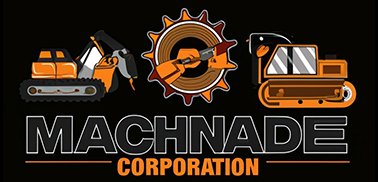Below is a detailed table showing the top trends in tractor technology, including key information about each trend.
| Trend | Description | Key Benefits | Examples | Challenges |
|---|---|---|---|---|
| Autonomous Tractors | Tractors that operate without human intervention using GPS, sensors, and artificial intelligence. | Reduced labor costs, increased precision, and extended operation hours. | John Deere’s Autonomous 8R, Kubota’s AgriRobo | High initial cost, regulatory issues, and safety concerns. |
| Electric Tractors | Tractors powered by electric batteries instead of traditional diesel engines. | Lower emissions, reduced fuel costs, and quieter operation. | Fendt e100 Vario, Monarch Tractor | Limited battery life and high cost of batteries. |
| Precision Agriculture | Use of GPS and IoT to monitor and optimize field conditions, plant health, and equipment performance. | Increased yield, efficient resource use, and reduced environmental impact. | Trimble Agriculture, Ag Leader Technology | Requires significant investment in technology and training. |
| Telematics and Connectivity | Systems that enable real-time data transmission and remote monitoring of tractor performance and diagnostics. | Enhanced fleet management, preventive maintenance, and better decision-making. | John Deere JDLink, Case IH AFS Connect | Data security and privacy concerns, dependency on reliable internet connectivity. |
| Hybrid Tractors | Tractors that combine traditional diesel engines with electric motors for enhanced efficiency and performance. | Fuel savings, reduced emissions, and improved versatility. | John Deere SESAM (Sustainable Energy Supply for Agricultural Machinery) | Complexity in maintenance and higher initial costs. |
| Advanced Implement Controls | Integration of smart technology in tractor implements for better control and efficiency. | Improved precision in tasks like planting, spraying, and harvesting. | ISOBUS technology, SmartFirmer by Precision Planting | Compatibility issues between different brands and systems. |
| Robotics and Drones | Use of robotic systems and drones for tasks such as planting, spraying, and monitoring crops. | Labor savings, increased precision, and ability to operate in difficult conditions. | Trimble’s WeedSeeker, DJI Agras T20 | Regulatory hurdles, high cost, and technical complexity. |
| AI and Machine Learning | Application of AI and machine learning for predictive analytics, crop health monitoring, and autonomous decision-making. | Enhanced decision-making, improved yield predictions, and proactive maintenance. | IBM Watson Agriculture, John Deere’s See & Spray technology | Data accuracy and reliability, significant initial investment. |
| Enhanced Ergonomics and Comfort | Focus on improving operator comfort through advanced cab designs, better controls, and reduced vibration. | Increased operator productivity, reduced fatigue, and better overall work conditions. | Case IH Magnum’s MultiControl Armrest, New Holland’s Horizon Ultra Cab | Additional cost and complexity in design. |
| Sustainable Technologies | Implementation of technologies aimed at reducing the environmental impact of farming, such as bio-based fuels and sustainable materials. | Reduced carbon footprint, compliance with environmental regulations, and potential cost savings in the long run. | Valtra’s N174 using Neste MY Renewable Diesel, New Holland’s methane-powered tractor | Availability and cost of sustainable materials and fuels, adoption challenges. |
| Big Data and Analytics | Collection and analysis of large volumes of data from various sources to inform decision-making and optimize operations. | Improved decision-making, enhanced productivity, and better resource management. | Climate FieldView, Granular | Data integration challenges, data privacy concerns, and need for specialized skills. |
| Advanced Safety Features | Integration of advanced safety systems such as automatic braking, collision detection, and roll-over protection systems. | Reduced accidents, increased operator safety, and potential insurance benefits. | John Deere’s ActiveCommand Steering, Case IH’s AFS Harvest Command | Higher cost and complexity in technology integration. |
These trends highlight the ongoing advancements in tractor technology, focusing on increasing efficiency, sustainability, and operator safety, while addressing the challenges related to cost, data management, and regulatory compliance.
In the vast and dynamic landscape of agriculture, the evolution of tractor technology stands as a testament to human ingenuity and innovation. Tractors, once humble machines designed for labor-intensive tasks, have undergone a profound transformation over the years.
The integration of cutting-edge technologies into these mechanical workhorses has heralded a new era in farming practices, where precision, efficiency, and sustainability are paramount considerations.
As farmers navigate the intricate web of challenges posed by modern agricultural demands, staying abreast of the latest trends in tractor technology becomes not just advantageous but indispensable.
The relentless march of progress in tractor technology beckons farmers, agricultural researchers, tractor aficionados, and tech enthusiasts alike to explore an ever-expanding universe of possibilities.
In this era of rapid technological advancement, embracing innovation is no longer a choice but a strategic move towards securing sustainable yields and optimizing resource management.
From autonomous tractors revolutionizing field operations to the seamless integration of artificial intelligence in decision-making processes, each trend represents a vital piece in the complex puzzle of modern farming practices.
As we delve deeper into this comprehensive exploration of the top trends shaping tractor technology today, let us unravel the multifaceted realm where tradition meets cutting-edge innovation to redefine the very essence of agriculture as we know it.
Stay tuned as we journey through the transformative landscapes carved by these groundbreaking trends that promise to revolutionize agriculture on an unprecedented scale.
Autonomous Tractors: Shaping the Future of Precision Farming.
The integration of autonomous technology in modern tractors marks a significant leap towards precision farming. These cutting-edge tractors are equipped with advanced sensors, GPS technology, and artificial intelligence algorithms to perform tasks with minimal human intervention.
By utilizing precise positioning data and real-time monitoring capabilities, autonomous tractors can autonomously navigate fields, sow seeds, apply fertilizers, and harvest crops with unmatched accuracy. This level of automation not only streamlines farm operations but also ensures consistent and optimized crop management practices.
The benefits of autonomous tractors extend beyond operational efficiency. Farmers stand to benefit from reduced labor costs as these vehicles can work around the clock without requiring breaks or shifts.
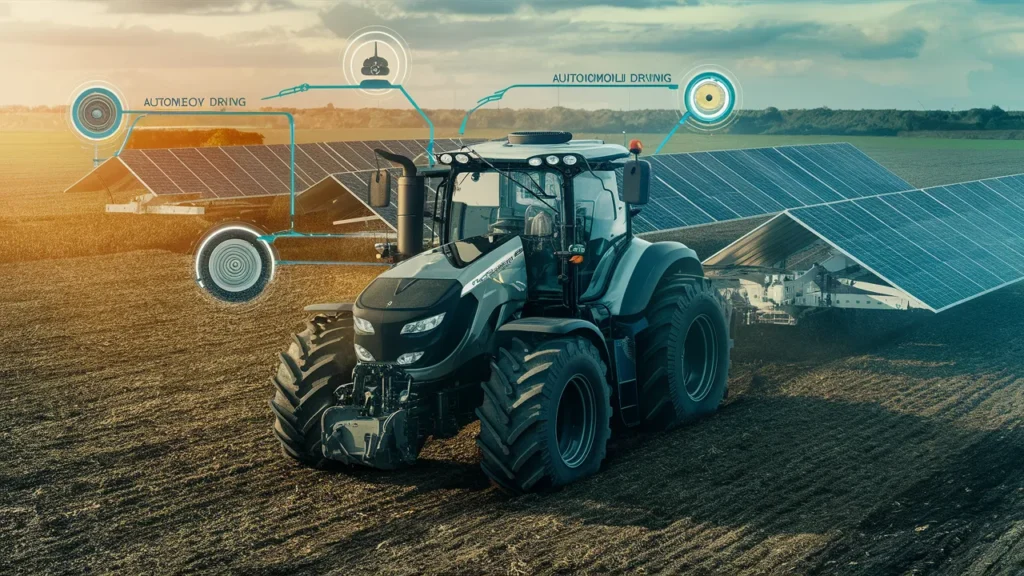
Additionally, the precision offered by autonomous systems results in more efficient use of resources such as water, fertilizers, and pesticides, ultimately leading to improved crop yields. However, widespread adoption of autonomous tractors faces challenges related to cost barriers associated with initial investment and maintenance expenses.
Moreover, concerns about data security and privacy issues surrounding the collection and utilization of farm-specific data pose hurdles that need addressing for broader acceptance.
Despite the potential challenges hindering widespread adoption, the promise of increased productivity and reduced environmental impact positions autonomous tractors as a vital component in the future of agriculture.
With continuous advancements in machine learning and robotics driving further improvements in autonomy features, it is evident that these smart machines will play a pivotal role in transforming traditional farming practices into sophisticated precision agriculture systems.
As farmers embrace this technological revolution, they pave the way for a more sustainable and productive agricultural landscape powered by innovative tractor technologies.
Artificial Intelligence (AI) Integration
Artificial Intelligence (AI) is reshaping the agricultural landscape by integrating advanced algorithms into tractor technology. The role of AI in enhancing tractor capabilities extends to predictive maintenance, where sensors collect data on various components of the tractor and predict potential failures before they occur.
This proactive approach not only minimizes downtime but also reduces maintenance costs significantly. Moreover, AI assists in decision-making processes by analyzing vast amounts of data related to soil quality, weather patterns, and crop health to optimize farming practices.
In the realm of improving crop yield and resource management, AI applications in tractor technology are proving transformative. For instance, AI-powered tractors equipped with precision farming tools can precisely analyze soil conditions and deliver appropriate amounts of water and fertilizers tailored to specific areas within a field.
This targeted approach not only enhances crop productivity but also minimizes resource wastage, promoting sustainable farming practices. Additionally, AI algorithms can assess real-time data collected from sensors to detect early signs of crop diseases or pests, enabling farmers to take swift corrective actions.

The future prospects of AI integration in tractors hold promise for smarter farming practices across the agricultural sector. As AI continues to evolve, we can expect tractors equipped with even more sophisticated technologies that autonomously adapt to changing environmental conditions.
Imagine tractors that leverage machine learning algorithms to continuously improve their efficiency based on historical data and real-time inputs from the field. These advancements herald a new era where tractors become intelligent partners in farm management, aiding farmers in making informed decisions for optimized productivity and sustainability throughout the entire cultivation process.
Electric Tractors.
Electric tractors have emerged as a significant trend in modern agriculture, driven by the industry’s increasing focus on sustainability and reducing environmental impact. The shift towards electric tractors offers several advantages over traditional diesel-powered counterparts.
One key benefit is the substantial reduction in emissions, contributing to a cleaner farming environment and aligning with global sustainability goals. Additionally, electric tractors bring about cost savings on fuel expenses, making them an economically attractive option for farmers looking to optimize operational costs in the long term.
Despite the promising advantages of electric tractors, manufacturers face inherent challenges in their widespread adoption. One primary obstacle is the limited infrastructure for charging electric vehicles in rural farming areas.
To address this issue, collaborations between tractor manufacturers and energy companies are being explored to set up charging stations tailored for agricultural needs. Moreover, enhancing battery technology to improve range and efficiency remains a key focus area for overcoming limitations associated with electric tractor operations.
An interesting development seen in the realm of electric tractors is the integration of renewable energy sources such as solar panels into tractor designs. By harnessing clean energy from the sun, these tractors can achieve greater autonomy while reducing reliance on external power sources.
This innovative approach not only enhances the sustainability aspect of farming practices but also paves the way for self-sufficient agricultural operations that align with eco-friendly principles. Overall, the evolution towards electric tractors signals a significant step forward in transforming traditional farming methods into greener and more efficient practices within the agricultural sector.
Precision Farming Technologies.
Precision farming technologies have revolutionized modern agriculture by integrating advanced tools into tractors, allowing farmers to optimize their resources and significantly increase productivity. These technologies enable farmers to precisely manage inputs like water, fertilizers, and pesticides based on real-time data collected from sensors embedded in the fields.
By leveraging GPS guidance systems and automated control mechanisms, modern tractors equipped with precision farming technologies can perform tasks with higher accuracy and efficiency than ever before.
The benefits of incorporating precision farming techniques into tractor technology are vast. Farmers can reduce input costs by using resources more efficiently, minimize environmental impacts through targeted application methods, and ultimately enhance crop yields.
For example, variable-rate technology (VRT) allows tractors to adjust the application rates of inputs according to specific requirements within different areas of a field, optimizing plant growth conditions while reducing waste. This precise approach not only boosts productivity but also ensures sustainable agricultural practices.

Several case studies exemplify how successful implementation of precision farming techniques using advanced tractor features has transformed farming practices across various regions. In one instance, a farm integrated soil moisture sensors into their tractor system to enable intelligent irrigation scheduling.
By continuously monitoring soil moisture levels and automatically adjusting irrigation patterns based on data insights, the farm achieved significant water savings while improving crop quality and yield.
Such real-world applications highlight the practical advantages of merging precision farming technologies with cutting-edge tractor functionalities for sustainable and efficient agricultural operations.
Data Analytics in Tractor Technology.
In the realm of modern agriculture, data analytics has emerged as a powerful tool revolutionizing tractor technology. By leveraging data-driven insights, farmers can make informed decisions crucial for enhancing farm management practices.
Through the integration of sensors and sophisticated monitoring systems within tractors, essential information is collected regarding soil health, crop growth patterns, and machinery performance. This wealth of data enables farmers to optimize resource allocation, monitor field conditions in real-time, and implement precision farming techniques tailored to specific needs.
The significance of deploying data analytics in tractor technology cannot be overstated when aiming to maximize agricultural output efficiently.
Smart tractors equipped with advanced analytics capabilities can provide predictive maintenance alerts to prevent costly downtime, offer recommendations for optimal planting densities based on historical yield data analysis, and even facilitate autonomous decision-making processes during field operations.
By embracing these data-driven approaches, farmers stand to not only boost productivity but also reduce waste by ensuring resources are utilized judiciously.
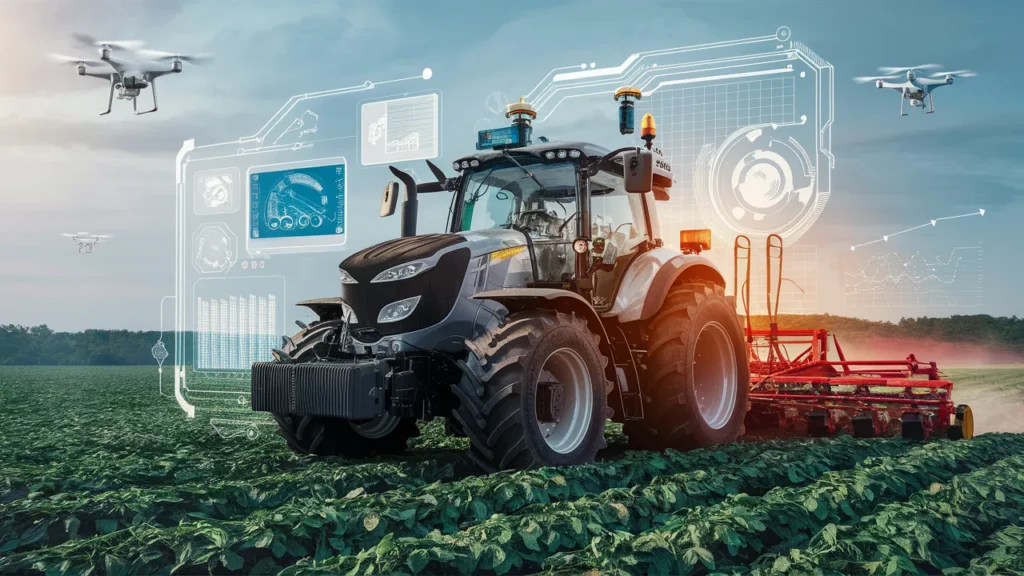
However, along with the transformative potential of data analytics in tractor technology come challenges related to privacy and security concerns. Safeguarding sensitive farm data from cyber threats and unauthorized access poses a critical hurdle that must be addressed with robust encryption protocols and secure storage mechanisms.
Furthermore, ensuring compliance with data protection regulations while extracting valuable insights from tractor-generated information demands a delicate balance between innovation and safeguarding farmer privacy rights.
Navigating these challenges will be pivotal in harnessing the full benefits that data analytics can offer within the agricultural sector while upholding integrity and trust in technological advancements.
Sustainability Features.
The integration of sustainability features like renewable energy sources and eco-friendly materials into modern tractors marks a significant shift towards greener agricultural practices.
By adopting these sustainable measures, the agriculture industry can reduce its carbon footprint and environmental impact while promoting long-term ecological balance. For instance, some tractor manufacturers are incorporating solar panels to power auxiliary systems on tractors, reducing the reliance on traditional fuel sources and lowering emissions during operation.
The impact of embracing sustainability within tractor technology extends beyond individual farm operations. It influences the broader agriculture sector by setting new standards for environmentally conscious practices.
Farmers investing in sustainable tractors contribute to a more sustainable food production system as a whole, aligning with global efforts to combat climate change and preserve natural resources.
Additionally, the demand for sustainably designed tractors creates opportunities for innovation and collaboration among manufacturers striving to meet these evolving market expectations.
Looking ahead, future trends in tractor technology will increasingly prioritize sustainability aspects in both design and production processes.
From utilizing recycled materials for construction to exploring alternative fuel options such as hydrogen or electric powertrains, manufacturers are actively experimenting with diverse solutions to enhance the sustainability profile of tractors.
These innovations not only cater to environmentally aware consumers but also drive the industry towards a more ecologically responsible approach that benefits both farmers and the planet.
Connectivity & Internet-of-Things (IoT).
In the realm of modern agriculture, the fusion of connectivity and Internet-of-Things (IoT) technologies has orchestrated a revolutionary transformation in tractor functionality. Through seamless integration with smart agriculture systems, tractors are now equipped to gather and transmit real-time data crucial for precision farming operations.
This interconnected ecosystem enables farm managers to remotely monitor field activities, analyze crop health metrics, and conduct equipment diagnostics with unprecedented ease and efficiency. By leveraging IoT connectivity, tractors have transcended mere mechanical tools to become intelligent agents that optimize agricultural processes.
Looking ahead, the future of tractor technology beckons towards a landscape rich with innovative trends beyond traditional paradigms. Drones poised for widespread adoption in agriculture promise aerial surveillance capabilities that enhance crop monitoring and pest control measures.
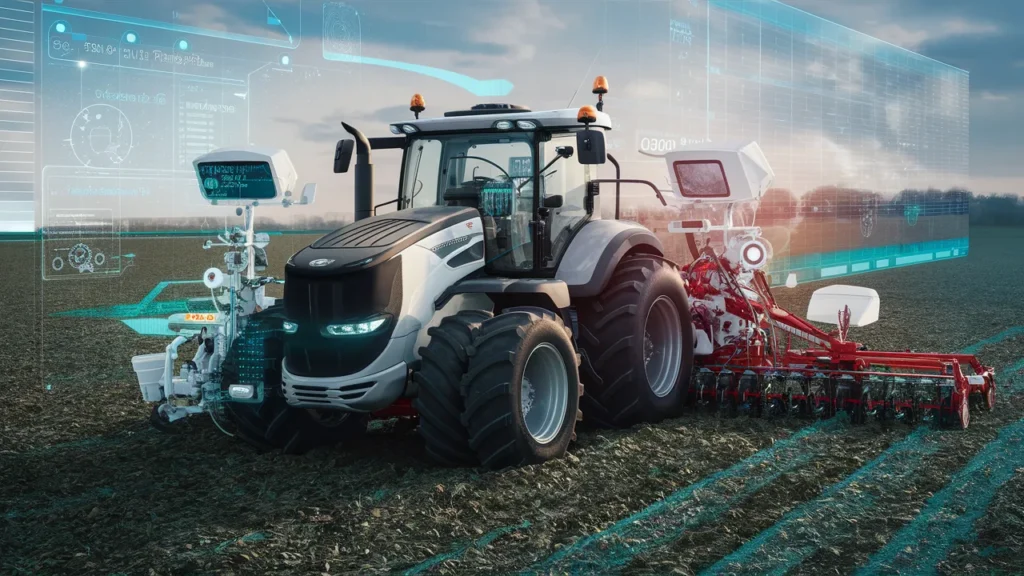
Farm robotics represent another burgeoning frontier where autonomous machines complement human labor in tasks like planting or harvesting. Moreover, the integration of machine learning algorithms into farming practices holds immense potential for revolutionizing decision-making processes on farms by analyzing vast datasets to extract actionable insights for optimal yield outcomes.
As these diverse trends intertwine with advancements in tractor technologies, a harmonious synergy emerges – paving the way for futuristic farming solutions that cater to evolving market demands and sustainability imperatives.
Conclusion: Modernizing Agricultural Systems Through Tractor Technology Trends.
The evolution of tractor technology has undeniably played a pivotal role in modernizing agricultural systems worldwide. As we delve into the realm of connectivity and Internet-of-Things (IoT) in tractors, it becomes evident that these innovations are not merely technological upgrades but catalysts for a revolution in farming practices.
By integrating IoT devices and connectivity options, farmers can now access real-time data transfer between field machinery and centralized farm management systems, enhancing operational efficiency, crop monitoring, and equipment diagnostics like never before.
This interconnected approach is reshaping how farmers interact with their equipment and make informed decisions to optimize their yields.
Looking beyond the current trends in tractor technology, we anticipate an exciting future where advancements like drone usage in agriculture, farm robotics, and machine learning will converge with cutting-edge tractor technologies.
Imagine drones equipped with sensors providing precise data on soil health or robotic implements precisely planting seeds—all working seamlessly within a networked agricultural ecosystem guided by intelligent tractors.
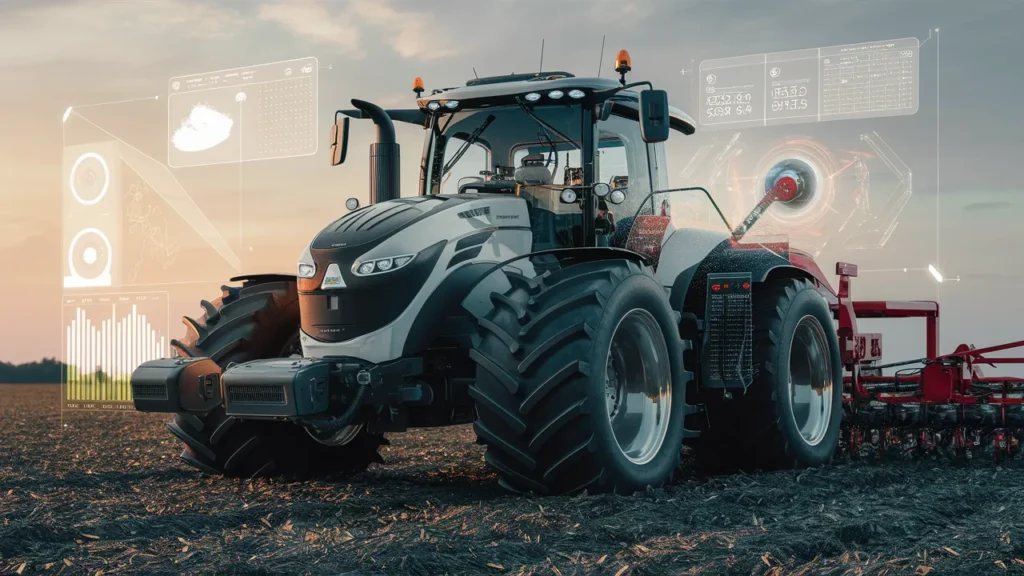
These upcoming trends hold immense potential for streamlining farming operations further, increasing sustainability efforts, and revolutionizing precision agriculture methodologies.
In essence, the critical role that tractor technology trends have assumed goes beyond mere mechanization; they represent a fundamental shift towards sustainable, efficient farming practices.
From autonomous tractors optimizing labor resources to electric tractors mitigating environmental impact and precision farming techniques maximizing resource allocation—the journey of modernizing agricultural systems through tractor technology is emblematic of innovation steering the agriculture industry into a technologically advanced era.
As these trends continue to evolve and intertwine with emerging technologies on the horizon, one thing remains clear—tractors will remain at the forefront of transforming agriculture into a smarter, more sustainable sector ready to meet the challenges of tomorrow.
Conclusion.
In the ever-evolving landscape of agricultural technology, tractors stand at the forefront of innovation, driving efficiency, sustainability, and productivity in modern farming practices.
The trends discussed in this article shed light on the transformative power of autonomous systems, artificial intelligence integration, electric propulsion, precision farming technologies, data analytics applications, sustainability features, and IoT connectivity in shaping the future of agriculture.
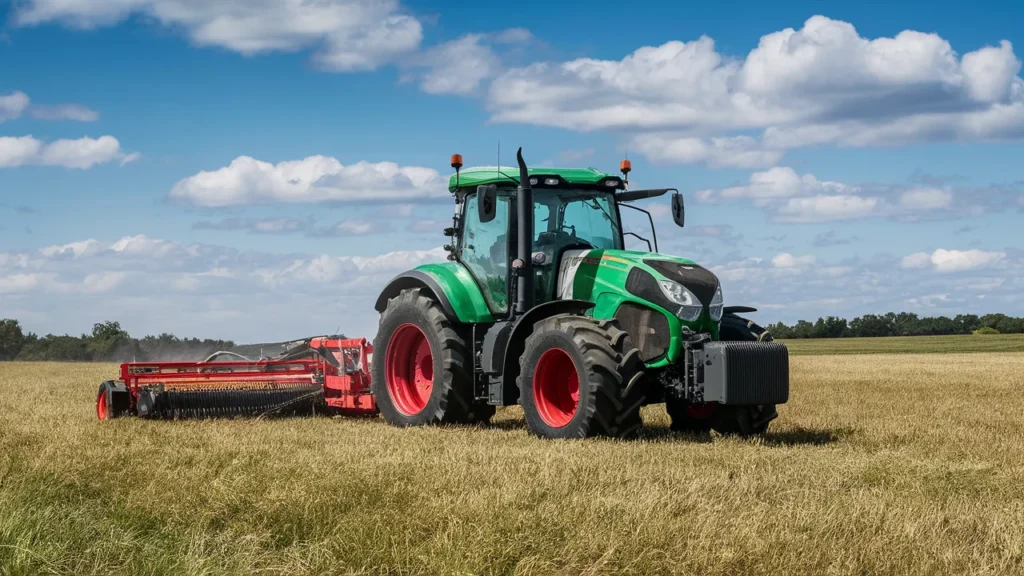
These advancements not only streamline operations but also pave the way for smarter decision-making processes that optimize resource utilization and environmental impact.
As farmers, agricultural researchers, tractor enthusiasts, and technology aficionados continue to witness the rapid progression of tractor technology trends, it becomes evident that staying abreast of these developments is crucial for maximizing yields while minimizing inputs.
Embracing these cutting-edge innovations opens doors to new possibilities in sustainable agriculture and smart farming solutions. The narrative of modernizing agricultural systems through revolutionary tractor technologies underscores a commitment to efficiency and environmental stewardship—a testament to the enduring legacy of innovation within the realm of farming machinery.



